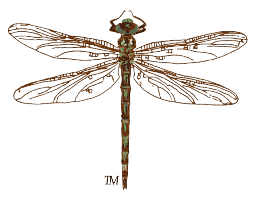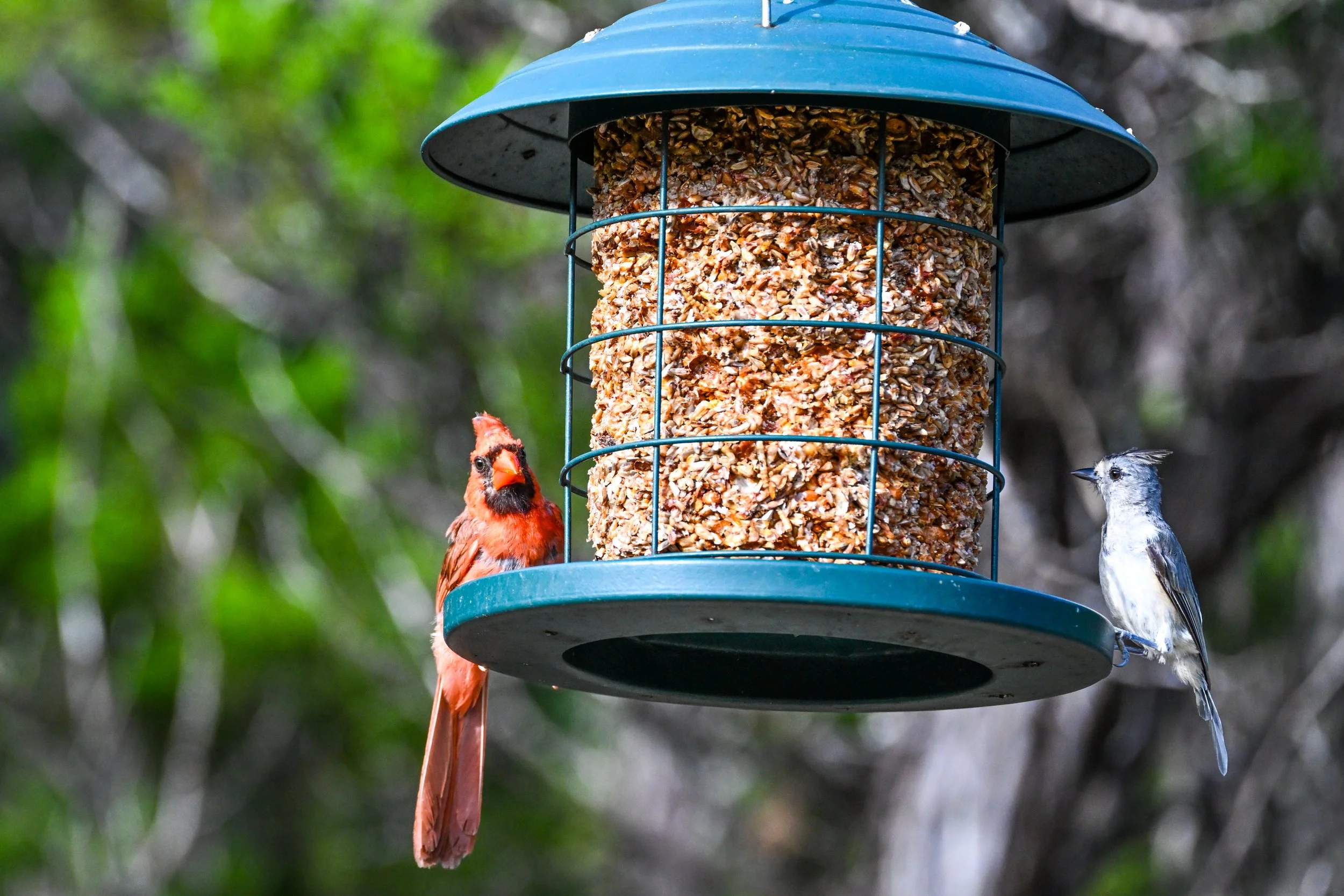Join Project FeederWatch
Discover the Birds of Hays County!
Painted Bunting Photo courtesy Betsy Cross
Tina Adkins
A flicker of vivid purple, yellow, green, and red flashes before my eyes as I scan the trees and brush for more flutters and swoops. No binoculars needed when such brilliant colors announce themselves! My gaze finally settles on the treasured songbird—a Painted Bunting—pausing to hunt for seeds from a nearby clump of cup grass.
Whether you’re searching for a special species or casually watching the visitors in your yard, every encounter brings delight—especially when you’re lucky enough to glimpse a rare bird or witness the fascinating interactions of our feathered friends.
More often, though, the “little brown birds” dominate the view, tricky to identify because of their many similarities. Was it a Bewick’s Wren or a Carolina Wren? A Lark Sparrow, a White-throated Sparrow, or a Harris’s Sparrow?
Bewick’s Wren
Carolina Wren
Lark Sparrow Courtesy Betsy Cross
Unless their feathers stand out—like the bold red of a Northern Cardinal or the flash of a Blue Jay—many can be challenging to distinguish. Size can offer clues, from the tiny Ruby-throated Hummingbird to the long-tailed Scissor-tailed Flycatcher.
That’s where binoculars become essential, helping you note each bird’s shape, color, and unique markings. Their songs and calls also reveal their identities, especially when visibility is limited. With time, your eyes and ears will grow attuned to their differences, making identification easier and even more rewarding.
Northern Cardinal Photo courtesy Eva Frost
Blue Jay Photo courtesy Betsy Cross
What Is Project FeederWatch?
FeederWatch is a wonderful opportunity for both new and seasoned birders to observe a wide variety of winter songbirds. This citizen-science project runs from November 1, 2025, through April 30, 2026, engaging participants across North America.
Locally, bird blinds with feeding and watering stations have been set up throughout Hays County, including:
Dripping Springs Ranch Park (DSRP) and Charro Ranch Park (CRP) in Dripping Springs
Driftwood Nature Preserve (DNP) in Driftwood
Patsy Glenn Refuge (PGR) in Wimberley
Each site features Bird Identification Signs to help visitors recognize common and uncommon species. Additional bird blinds at Jacob’s Well Natural Area (Wimberley), First United Methodist Church (Wimberley), Schulle Canyon Natural Area (San Marcos), and Westcave Preserve (Travis County) also offer birding opportunities, with signage installation planned soon.
See more details about Hays County Bird Viewing Stations in the August 2025 Hays Humm.
How It Began
Project FeederWatch originated in Ontario, Canada, with the first survey in 1976. After ten successful years, the program expanded when Birds Canada joined forces with the Cornell Lab of Ornithology, linking two continents and thousands of bird enthusiasts. Today, their combined data help scientists monitor long-term trends in bird populations and identify factors contributing to population declines—our modern-day “canaries in a coal mine.”
Get Involved Locally
Help track our Hill Country birds! Volunteers are invited to spend at least one hour in the morning observing and recording birds at designated sites:
Fridays & Saturdays: Charro Ranch Park and Driftwood Nature Preserve
Sundays & Mondays: Dripping Springs Ranch Park and Patsy Glenn Refuge
Tally sheets are simple and user-friendly, making participation easy and fun for all ages.
Training Sessions (9 a.m.)
November 9: Patsy Glenn Refuge (PGR), 14068 Ranch Road 12, north of the Community Center
November 9: Dripping Springs Ranch Park (DSRP), 1042 Event Center Drive
November 14: Charro Ranch Park (CRP), 22690 W. FM 150
November 15: Driftwood Nature Preserve (DNP), across from 15090 W. FM 150 (Driftwood Community Center)
Sign-Up Links
DSRP and CRP: signup.com/go/pqaVkSL
PGR: TBD
For more information and detailed instructions, visit:
👉 Project FeederWatch
And see more about Project FeederWatch at Charro Ranch Park in the April 2023 Hays Humm.
The Hays County Master Naturalists hope to see you there!
Come learn, observe, and help us document the beautiful birds that share our Hill Country home.
Photo courtesy Betsy Cross







